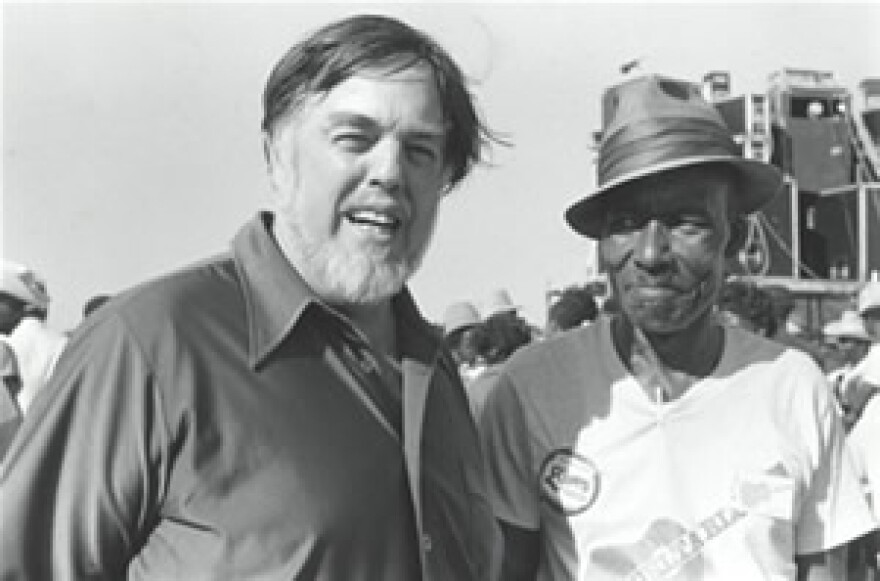Alan Lomax dedicated seven decades of his life to recording and distributing the sound of as much of the globe as he could reach. Beginning as a 17-year-old from Austin, Texas, Alan traveled with his father, John Lomax, to plantations, farms and prisons in the deep South.
Throughout his career as a folklorist and archivist he would continue to traverse the south, recording musicians like Jelly Roll Morton, Muddy Waters and Mississippi Fred McDowell.
Bill Ferris, the senior associate director of the Center for the Study of the American South at the University of North Carolina at Chapel Hill, reflects on Alan Lomax’s work as integral to the American understanding of folk music.
"He was a cultural phenomenon," Ferris said during an interview with Isaac-Davy Aronson on the State of Things. " He more than any other individual person, gathered massive collections of music, archived them at the Library of Congress and essentially made America aware of this rich tradition of music."
Alan Lomax saw his duty as an archivist as intertwined with his activism.
Nathan Salsburg, the curator of the Alan Lomax Archive at the Association for Cultural Equity, remarks on Lomax's desire to record those considered "untouchables" in their communities.
"Here was finally a means of giving a voice to the voiceless, a means of representing an underclass, who had never been documented," he said on the State of Things. " Celebrating this music was celebrating the people who made it. "
http://www.youtube.com/watch?v=7XBcr49-Rpw
The University of North Carolina at Chapel Hill’s Southern Folklife Collection is now celebrating the legacy of Alan Lomax in the American South. This Friday, the collection will host the symposium, "The Southern Journey of Alan Lomax."
Thousands of Lomax’s recordings from 1946 to 1991 can be found and accessed for free at the Association for Cultural Equity: http://www.culturalequity.org.



